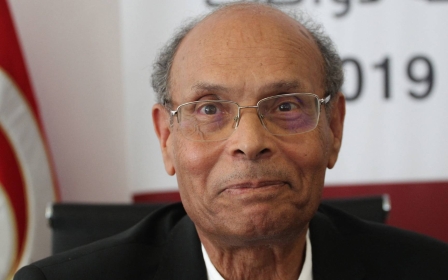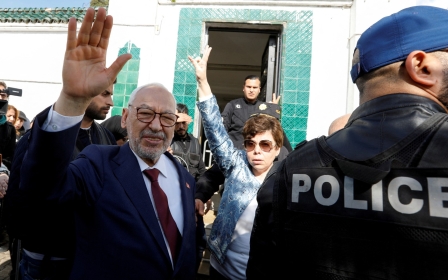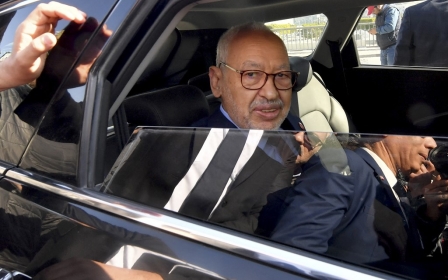Tunisia sentences four people to death for assassination of politician Chokri Belaid
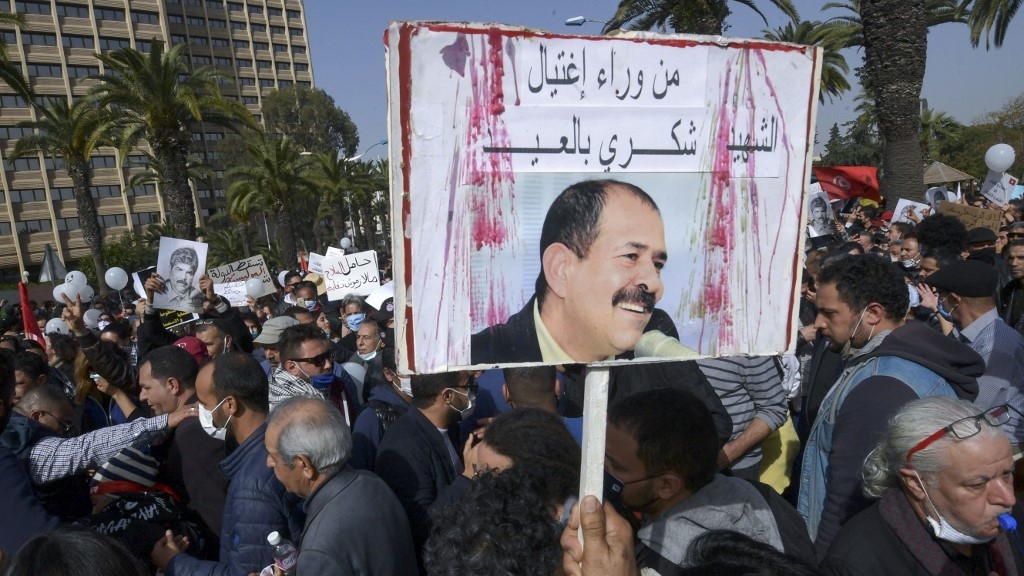
A Tunisian court sentenced four people to death and two to life imprisonment on Wednesday, after convicting them of participating in the 2013 assassination of opposition politician Chokri Belaid.
Tunisia has a de facto moratorium on the death penalty, and the sentences are expected to be commuted to life imprisonment.
Belaid, a left-wing politician, was shot dead in his car outside his home on 6 February 2013. Another left-wing opposition figure, Mohamed Brahmi, was killed in similar circumstances five months later.
The assassinations triggered political turmoil in the North African country, disrupting a democratic transition that followed the 2011 revolution that ousted longtime president Zine El Abidine Ben Ali.
The sentences have been handed down by the Court of First Instance and announced by the deputy public prosecutor of the counterterrorism judicial division.
Stay informed with MEE's newsletters
Sign up to get the latest alerts, insights and analysis, starting with Turkey Unpacked
Belaid served as the secretary-general of the Democratic Patriots' Unified Party and was a staunch critic of the then-ruling Ennahda party.
His family and supporters accused Ennahda of responsibility for his death. The assassinations of Belaid and Brahmi were, however, claimed by an Islamic State-affiliated group.
Tunisian security forces killed the alleged mastermind of the killings, Kamel Gadhgadhi, in 2014.
Ennahda, which espouses a moderate political Islamic ideology, has condemned the assassinations and denied any links to them.
It outlawed the Salafi movement Ansar al-Sharia as a terrorist organisation in the aftermath of the murders.
'Evidence of innocence'
Commenting on Wednesday’s ruling, Ennahda said the sentences are evidence both of its innocence and the false political accusations against its leaders over the past decade.
“The details concluded by the judicial circles clearly show conclusive evidence of the innocence of Ennahda," the party said in a statement.
It added that the case has "shaken national public opinion, destabilised the ruling coalition, sowed doubt among the national parties, and deepened the rift between intellectual and political families.
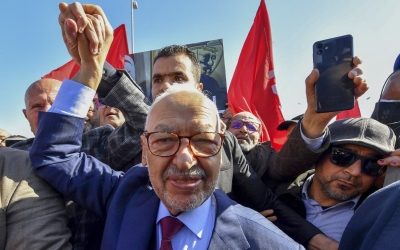
"The issuance of rulings in the assassination case should end the trading in the blood of the martyr and restore respect to those who have been subjected to false and deadly political accusations, especially the movement’s leader, Rached Ghannouchi," the statement added, calling for "turning a new page of major reconciliations".
Ghannouchi, 82, began a hunger strike last month to demand his immediate release, and in solidarity with other political prisoners.
Ghannouchi, a fierce critic of President Kais Saied, was jailed last year on charges of incitement against police and plotting against state security.
Saied was elected in 2019 following years of political turmoil. His rule has so far been marked by a crackdown on the opposition, with dozens of prominent opposition figures jailed or sentenced in absentia.
Saied unilaterally suspended parliament and dissolved the government in July 2021, in a power grab first revealed by Middle East Eye. He then decided to rule by decree, a move his opponents and human rights groups decried as a "constitutional coup".
The president also dismissed a number of judges in 2022, accusing them of obstructing investigations into Belaid and Brahmi’s killings.
This article is available in French on Middle East Eye French edition.
Middle East Eye delivers independent and unrivalled coverage and analysis of the Middle East, North Africa and beyond. To learn more about republishing this content and the associated fees, please fill out this form. More about MEE can be found here.


